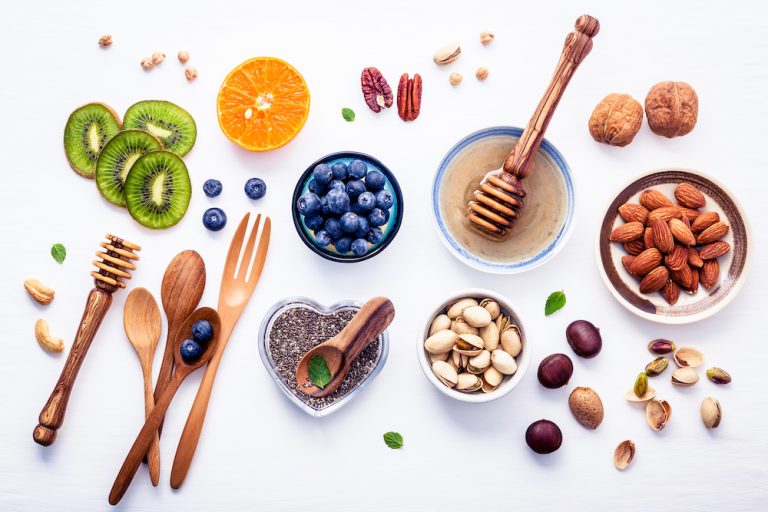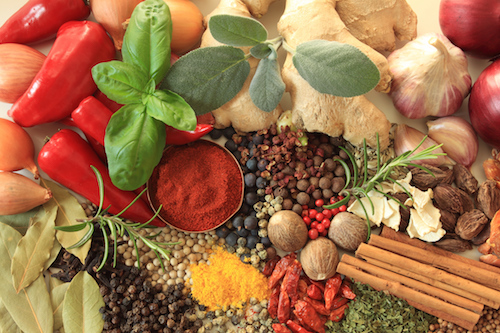The Importance of Gut Health: How Feeding Your Gut Enhances Your Well-Being
Focusing on the importance of gut health and nurturing your gut with nutrient-rich foods can lead to improved digestion and overall balance.

Understanding the importance of gut health is essential for long-term wellness. By feeding your gut with nutrient-dense foods and incorporating beneficial probiotics, you support a balanced immune system and smoother digestion.
If your gut isn’t happy, neither are you.
What we put into our bodies each day matters. While many of us think of food in terms of calories (and their impact on our curves) the significance of our daily food habits runs much deeper. Food feeds our gut, and in turn, our gut is often the key to our well-being.
Why Is the Gut So Important? The Benefits of Gut Health
The reality is that our gut takes up more of us than any other part of our body. The surface area of our intestinal lining could fill half a badminton court and is home to trillions of microorganisms, making us more microorganism than human. Despite the initial desire to sanitize and swat away these tiny bugs, the reality is that they are critical to our well-being since we are dependent on them for many aspects of our overall health.
These tiny helpers improve our ability to digest and absorb our daily food, and we even need them to make vitamin K, some B vitamins, and other nutrients, such as plant antioxidants that help decrease inflammation in the body. Our gut also serves as a critical defense against disease. It houses the lion’s share of our immune cells, secretes serotonin (the goal of antidepressants), and even affects our brain because of the large number of nerve cells it contains.
Your Own Personal Ecosystem
Scientists are still learning about the digestive system, and there is much we still don’t know. The standard tools we use to identify bacteria find less than half of the organisms that are actually there. In the past 30 years or so, our understanding of these bugs has exploded as scientists have developed techniques to copy the bacteria’s genetic material so that we can study them more closely. The Human Microbiome Project is probably one of the most well-known of these efforts, with the goal of identifying the bugs not only in our gut but also in the bladder, skin, nose, vagina, and mouth.
By studying these bugs, we can begin to understand just how vital they are. Despite what many of us may believe, it’s the rare bug in our gut that leads to problems like the stomach flu or diarrhea. In fact, research shows that a healthy microbiome actually cuts our risk of colon cancer and diabetes by excreting essential compounds, and is even instrumental in making sure that the medications we take work optimally.
There is a wide range of bacteria in our gut—about 35,000 different species—and many of these are unique to each individual. These bugs came to live within us when we passed through the birth canal, and research shows that even identical twins can have different organisms living in their gut. We also know that the majority of the beneficial bacteria are the Bifidobacterium and Lactobacillus types, but there are many others that also have an impact on our health.

A Direct Link to Well-Being
A healthy gut is a balanced gut, with a diverse microorganism community, a strong immune system, and minimal inflammation. We have to remember that our gut has multiple functions:
- Our gut is our second brain. This shouldn’t be too surprising; after all, we often feel something “in our gut” before we recognize it consciously. Outside of the brain, our gut has the most nerve cells of any organ. It does its job with little input from our central nervous system and even exerts control over the brain.
- The digestive tract holds the majority of our immune cells. The immune system is the part of the body that protects us from infection and disease and is constantly surveying our body to make sure all is well. Think about it: several times a day we put foreign objects (food) into our gut, which then has to ensure that none of those objects will harm us. Our gut needs a healthy immune system to make sure we don’t die after eating breakfast!
- Our intestines are made up of complex cells that have to absorb valuable nutrients from food while making sure that nothing harmful enters. Accordingly, these cells have to be social butterflies, secreting hormones and other compounds that affect surrounding organs, responding to alerts from the body and the environment, and even sacrificing themselves for the benefit of the body. This job is quite tricky, and our gut cells last only about three to five days, continually making room for new ones.
Signs of Poor Gut Health
When our gut becomes unbalanced, inflammation easily spreads from the digestive track to other areas of our body. Both our intestinal cells and our gut microorganisms send out alarm signals to tell the body that something is amiss and to put the body on alert for a possible attack.
We’re all familiar with the annoying bloating, flatulence, and constipation that commonly follow poor food choices. That’s our gut’s way of saying it isn’t happy and demanding better treatment. Yet stomach issues don’t always appear in the digestive system itself, and can include more subtle symptoms, including:
- Persistent fatigue
- Insomnia
- Increased allergies (environmental and food related)
- Sadness
- Weight gain
Tip: If you’ve been dealing with some of these symptoms and can’t quite figure out the reason for them, it may be time to look at your dinner plate. Try keeping a food diary to sort these issues out. Record everything you eat over the next two or three days, as well as how you feel after eating.
If you notice that your symptoms change depending on the foods you eat, you’ll need to investigate further. Try cutting out the most commonly irritating foods, such as dairy products, sugars, and highly processed foods, and see how you feel on the days you don’t eat them.
Read More
Feeding Your Gut: Practical Steps to Improve Your Gut Health
In addition to keeping a food diary, there are other measures you can take to make your gut a healthier place.
1| Incorporate probiotics and prebiotics
Probiotics and prebiotics are fundamental for gut health. Probiotics are foods or supplements containing microorganisms that are good for your gut. They can be especially helpful when you’ve been dealing with a lot of stress or have just finished a course of antibiotics. Just as important are prebiotics, the foods that microorganisms eat. Prebiotics are high fiber foods that humans aren’t able to digest, but which are crucial to replenishing the intestinal microbiome (because just like us, these bugs won’t survive if starved).
We Africans have been fermenting foods and eating prebiotics for generations, naturally shoring up the health of our gut. Here are some great traditional options:
- Fermented foods like injera, kisra, and ogi.
- Fermented drinks, including amahewu, borde, chibwantu, and shamita.
- Prebiotics in dishes such as amala, moin moin, ful medames, matoke, and mugoyo.
Some other great sources of prebiotics and probiotics include the following:
- Fermented foods such as kimchi, sauerkraut, natto, miso, and yogurt.
- Fermented drinks like kefir (which can be water-, dairy-, or plant-based) and kombucha.
- Prebiotics in foods such as garlic, leeks, flax seeds, oats, beans, and dandelion greens.
2| Cut out processed foods and sugars
Processed foods and those with a high sugar content are the exact opposite of prebiotics. These types of foods feed the microorganisms that we want to keep out (including Candida, which causes fungal infections, and E. coli, which causes diarrhea) and can cause changes in a short period of time. These foods are also associated with serious diseases, including diabetes, obesity, and colon cancer.
Tip: Find ways to make healthy swaps by replacing processed foods and sugars with prebiotics. Want to add sweetener to your tea? Use a little stevia. Craving a quick snack? Choose higher fiber nuts or bean chips instead of traditional potato chips.
3| Ditch the stress
We all have stress from work, finances, and societal issues. Yet taking this stress home with us and mulling over it affects our gut health. Studies show that psychological stress has an impact on gut flora, often in harmful ways. This day-to-day stress can result in fewer healthy bacteria and a drop in the diversity of the microbiome. Finding ways to relieve stress is essential—not only for your mood, but also for your health.
4| Give your body a rest
Just like the rest of your body, your bowel needs some time to rest from the hard work of digesting food. Research suggests that getting up to 16 hours of bowel rest can help improve both gut and overall health.
Even holding off on eating for 12 to 14 hours is a great option, and it’s simple to do if you incorporate the time into an overnight fast. Simply stop eating in the early evening and wait until you are hungry before you eat again, rather than pouring a bowl of cereal just because the clock says it’s time for breakfast. Of course, it’s vital to listen to your body and stop fasting if you feel unwell or have medical issues.
What you eat and how you live matter. The foods you put in your body, as well as the daily stressors you encounter every day, can either nurture or hinder your gut. Take time to consider the effects of both on your life and your health.
In the words of Tupac Shakur, “Let’s change the way we eat, let’s change the way we live.” Do this, and your gut will thank you.
Dr. Ogunyemi is a board certified urologist and health and wellness coach. She enjoys integrating her medical knowledge with holistic health practices to help her clients reach their unique health goals.



